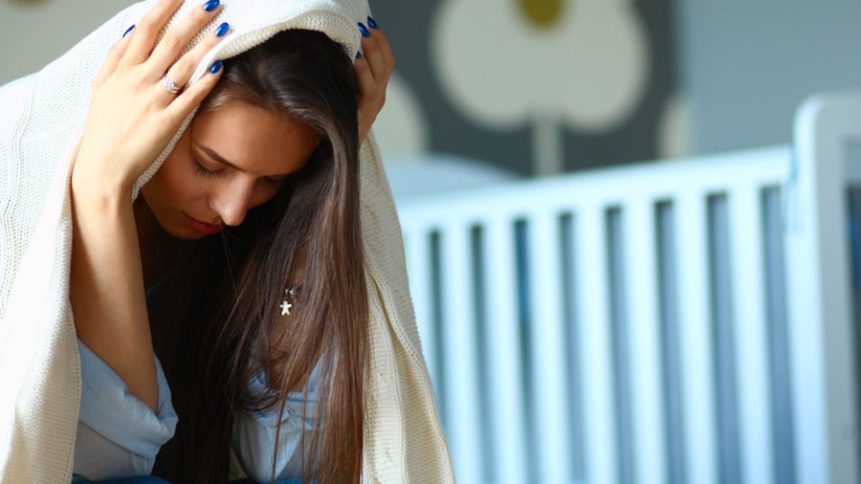
As an adoption professional, I am often asked: “Did you adopt?”
It may not be encouraging to hear me say, “Well, I failed at it, but trust me.”
However, when you want something, it can be just as informative to look to those who have failed and learned as it is to look to those who have succeeded.
When I was married, there were three sets of siblings I had hoped to adopt. All were children I had met through my work in foster care. The first was a set of brothers ages 8, 6, and 2 who had reunited with their parents, but then had come back into the system. The day those boys dragged their backpacks back into the foster home, my heart broke for them and I wanted to be their mom. On the one hand, I felt like an appropriate adoptive match for them. I already had known them for about two years, and had the professional experience to be ready for the challenges. But personally, my marriage was a mess.
Not only did we live in a studio apartment that I knew could not be approved, our intense arguments would disrupt any positive environment I would try to create for the children. (During one heated exchange a tissue box went flying and made a hole in the closet door.) If I had come to this home to assess us, we would never have passed.
It is not common knowledge that adoption is its own separate decision, its own process, and its own type of parenthood.
Colleagues would sometimes say to me, “You obviously love these kids, why not ‘just adopt’ them?”
My answer would often be vague: “We’re just not ready.”
The second time I had wanted to adopt, it was for a girl and a boy, ages 6 and 5, whose adoptive placement with a family was failing. They had the problem I still had in my own marriage – one partner wanted it, but the other did not. When they gave their seven-day notice on the children, it seemed clearly a decision to save the marriage. But I was still not a viable candidate.
The third time was for two teen boys, brothers who had been part of the system a long time and about whom I thought, if my husband at the time was not ready to be a dad, perhaps there could be a mentoring relationship. He became my ex-husband during the time I was chaperoning those boys through a winter snowboarding program. He left me on a Saturday night and the next morning I remember looking out the window of the bus to the mountain wondering if there was any good time to tell the boys. The policy of the agency at the time was “at least two years married or one year divorced” to be able to adopt.
“Why not just adopt?” is something I hear all the time and seems to be culturally accepted as a reassuring statement to couples who may not be able to conceive. But it is far from a simple extension of the fertility journey; there are policies and regulations that prevent far more people from adopting than anyone might expect.
Adoption…is far from a simple extension of the fertility journey; there are policies and regulations that prevent far more people from adopting than anyone might expect.
Unless you work in adoption or have been around adoption pretty intimately, it is not common knowledge that adoption is its own separate decision, its own process, and its own type of parenthood.
After my ex-husband and I divorced and I was with a new boyfriend, I was happy to be in love again. But one day, my boyfriend revealed a secret; he told me about his criminal past and how he had turned his life around. I lay on the couch and cried but could not explain to him why I was so emotional. Through my adoption-filtered mind, I knew that if for some reason we could not have a child biologically, if I stayed with him, it would mean never becoming a mother. The type of conviction he had would make us an exclusion from any type of adoption forever.
We split for unrelated reasons and he still doesn’t know that on that day I had decided to stay with him despite having to potentially give up my most important life goal. It is likely the relationship wouldn’t have survived anyway, but at the time that was a pretty momentous decision for me.
In adoption, there are other issues that exclude people from consideration and I had to deal with them in my personal life with virtually every man I dated — the seemingly benign drug histories, the DUIs, and the “teenage indiscretions.” They were not simply dating life stories.
I knew what each of these meant in concrete terms for international, domestic, private, and foster care adoptions. With each partner, in my head there was a running commentary.
“If I stay with you, we could adopt from China but not South Korea, and that could possibly still take years.”
“If we stay together I’ll need to wait a few more years of your being ‘clean’ without any setbacks, before we could adopt from anywhere.”
In one positive case: “This situation might actually work for a young pregnant mother making a decision for her baby. I think she could relate to us.”
In the adoption process, for the good of the children of course, you have to discuss things most people try to avoid at Thanksgiving dinner. Awkward questions about race, history of counseling and medication usage, gender identity and sexual orientation, sexual activity, and even body mass index. We ask about illnesses and journeys like recovering from cancer, and each question is pretty specific as to whether it is viewed as a strength or exclusion depending on the type of adoption.
Many times I have been in the uncomfortable position of learning something about someone before his or her spouse; it is difficult knowing that the disclosure might break them up if it means they cannot adopt or even if the spouse finds out at all.
More times than I can count when I was working in international adoption, hopeful future parents would call me on the very day they suffered a miscarriage, looking for a sign of hope from me. The “just adopt” comment from a friend or loose idea that they might have agreed on as backup, suddenly had become a realistic need. I would have to decide in the moment how much to ask or not ask so as not to break their hearts again so soon.
The well-intentioned assumption that anyone can “just adopt” often comes from the knowledge that are so many children in need in the world. While this need is absolutely real, adoption decisions are not based only on how potentially loving and responsible a person or couple may be.
There are impediments to adoption you might not even imagine, such as a rule a country has based on cultural expectations or biases. Although discrimination due to race, religion, or gender or sexual identity may be illegal in the United States, in international adoption, it is the other country’s rules that influence what happens to that country’s children. Even people of a certain weight cannot adopt from certain countries.
On the flip side, there are times when a negative factor for one type of adoption might be a strength for a different type. For example in domestic private adoption, a birth mother might intentionally choose someone with a seemingly less-than-perfect life because she can relate. Or she’ll choose two dads because that way she can always stay the mother. However, most people, even the professionals, might never know all that lay behind an adoption decision.
My nurturing nature wasn’t enough the fourth time a child whom I wanted to adopt came into my life, while I was working in private adoption. One day I was called to the hospital because a baby was born whose adoptive parents never came for him at the hospital; he had arrived with unexpected, severe medical challenges. My job at the time required me to sign off on the medical procedures given that he did not have parents to authorize them.
I held him almost daily while he recovered from numerous surgeries and ultimately when he needed to be weaned off pain medication. For many months I cared for him and loved him like he was my own.
While there was never a time I could afford an international adoption, a domestic special-needs adoption, even private, would come with financial assistance that would have given me some means to care for him. This might have been a good fit.
But just before meeting him I had started trying to have a baby with a sperm donor. In fact the very first day I met this baby who had just had his first emergency heart surgery, I was in the hospital PICU wondering if I should be there, because I was only a few days into knowing I was pregnant. Although of course I did not want to put my baby at risk, I stayed; I was not far enough into my pregnancy to feel ready to tell anyone, including my employer (the adoption agency), and I wanted to trust in God and the universe that my baby would be ok while I was doing my best to be a surrogate parent for another baby who needed me.
Once again, though, the timing wasn’t right for me to adopt: I was a soon-to-be single mom. As my belly grew with my own baby, I held this infant through all of his recovery. I watched him get bigger and healthier, until he was breathing and feeding on his own. And in my seventh month of pregnancy, right before the Christmas holidays, I handed that baby I loved as my own through pain I cannot describe to his new adoptive parents.
There has never been a good time to tell my adoption attempt stories, so most people in my life, even my parents and closest friends, don’t know about them. Adoption can be a beautiful thing, but like conception on the fertility journey, it is not available to everyone. So please stop saying: “You can always ‘just adopt.’”
Contributor
Selena Liu
Selena currently works as the Program Supervisor of Adoptions, Foster Care and Intensive Treatment Foster Care at Five Acres in Los Angeles. She is a writer, speaker and trainer on all types of adoption related topics (domestic, international and foster) but conceived her son Jonah with a donor and gave birth to him in 2012 in New York City.

Listen to stories, share your own, and get feedback from the community.


















